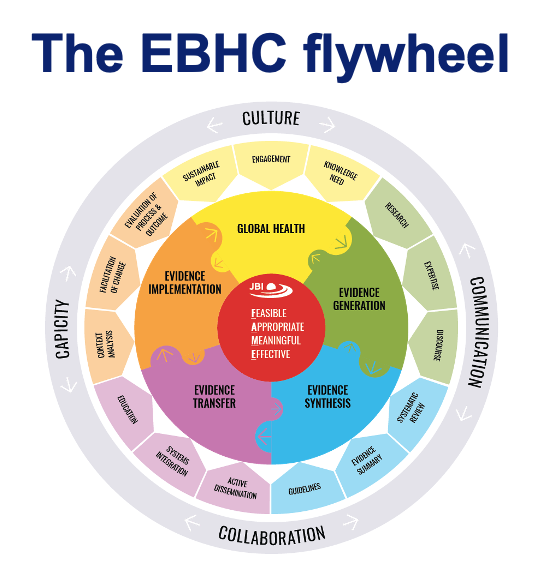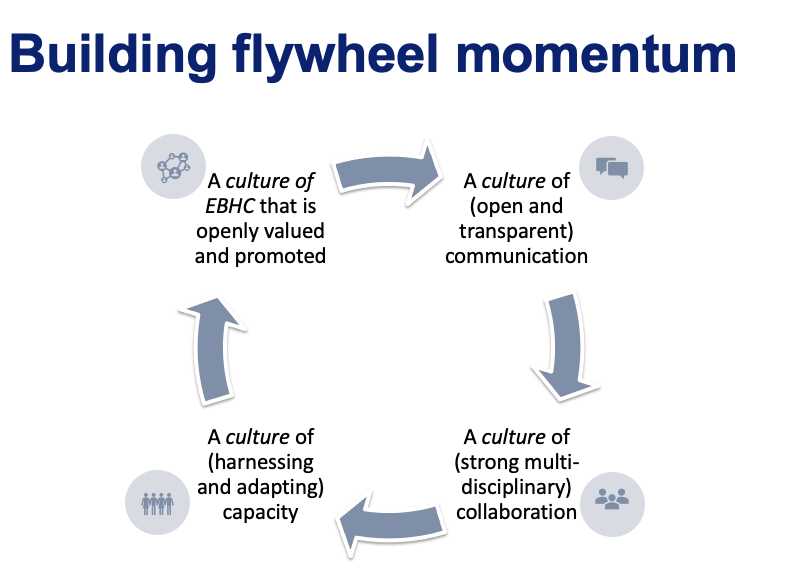
To celebrate #JBIMethodologyMonth, we have developed a #Tweetorial to share our thoughts on how to drive momentum for evidence-based healthcare so that it becomes embedded in the fibre and fabric of every organisation. (1/11) @JBIEBHC
Since its emergence in the 1990’s, #EBHC has made great strides in locating, synthesising, summarising, and disseminating evidence- but sustainable mechanisms for getting trustworthy evidence into policy and practice continues to be less well understood. (2/11)
The concept of a “flywheel effect” has been adopted in management fields to demonstrate how change in organisations or practices rarely happens in one fell swoop; rather, sustainable change requires energy and persistent effort. (3/11)
#Healthcare is an environment where there has been a failure of different parts of the system to pull in the same direction. To turn the “EBHC flywheel”, consistent attention is required to “key levers” as identified in the JBI Model of #EBHC. (4/11) 

The “four C’s” underpinning the JBI Model of EBHC (culture, communication, collaboration & capacity) are the navigational instruments that provide a human focus needed to shift EBHC from singular initiatives to being part of the lifeblood of how organisations function. (5/11)
Component 1 (Culture): The human element is self-evident in EBHC initiatives- they influence, enable or defeat strategies designed to change policy/practice. Orgs need to develop an adaptive & disciplined culture where employees can learn, challenge & change to stimulate progress 

Component 2 (Communication): Adopt transparent principles, practices and perspectives using #empathy to promote clarity and connectivity across multi-disciplinary teams and open opportunities for collaboration. (7/11)
Component 3 (Collaboration): Organisations can create collective responsibility for EBHC utilising three facilitative constructs: common vision, collective identity, and cooperation. This results in a ‘coactive’ rather than coercive drive towards #EBHC. (8/11)
Component 4 (Capacity): nurture opportunities to listen, learn and lead at all levels recognising that #people are your organisations greatest asset. Their knowledge and expertise are the principal creators of value and need to be overtly supported and enhanced. (9/11)
EBHC is relational, not transactional, and requires #human action and interaction. (10/11)
The transformative power of investing [consistently] in the “four C’s” to empower & enable employees, arms them with the authority to work together to challenge and change practice & can help diffuse the complexity often encountered in #EBHC initiatives. (11/11)
• • •
Missing some Tweet in this thread? You can try to
force a refresh



